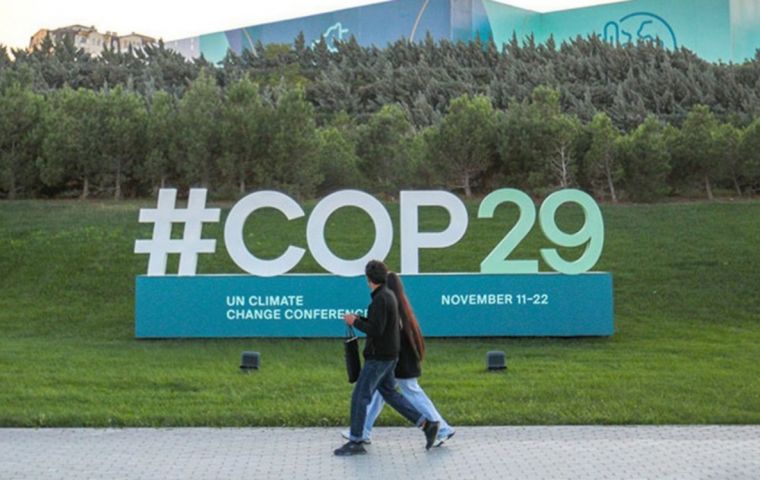MercoPress. South Atlantic News Agency
Brazil, UK partnership to decarbonize industries explained
 “The UK brings climate finance, expertise in innovative technologies, and experience in public policies aimed at decarbonization,” Zapata said
“The UK brings climate finance, expertise in innovative technologies, and experience in public policies aimed at decarbonization,” Zapata said After Brazil and the United Kingdom agreed during COP29 in Baku, Azerbaijan, last month to join forces in decarbonizing industries in both countries in a move to protect the environment, Agência Brasil delved this weekend into the scope of such an understanding.
The cooperation structure between the two countries, known as the “decarbonization hub,” seeks to enable the transition to clean energy with strategic minerals and low-carbon hydrogen, it was explained. Further details of this cooperation plan are to be discussed at COP30, in Belém (Brazil), next year.
According to Economist Clovis Zapata, who represents the United Nations Industrial Development Organization (UNIDO) in Brazil, the main challenge for decarbonizing industry in the South American country would be to develop business models capable of spreading low-carbon technologies combined with economic growth.
”Including segments whose own industrial process can be difficult to decarbonize (such as steel, cement, and petrochemicals),“ he told Agência Brasil.
An important point would be the need, brought up by the Brazilian industrial sector, for more facilitation of investments in decarbonization and sustainable modernization of infrastructure. The partnership between the governments aims to attract national and international technical and financial resources for decarbonization projects and public policies.
”The UK brings climate finance, expertise in innovative technologies, and experience in public policies aimed at decarbonization,“ Zapata also said.
British cooperation complements Brazil's already recognized initiatives in the development and use of renewable energies and biofuels. In these sectors, Brazil would be a global benchmark. ”Together, the two countries can create a mutually beneficial environment of bilateral cooperation that promotes innovative and globally replicable solutions, serving as a reference, in particular, for other countries in the Global South with similar development to Brazil,“ he added.
The UK's support for Brazil would include financial investments with the participation of governments, companies, funds, financial institutions, and international organizations.
The UK representative says that the Industrial Decarbonization Hub is already in operation with public calls opened by the UN entity itself for the development of projects and studies in strategic segments.
Another challenge is that the international community is drawing attention to possible problems with the disposal of technologies used to implement clean energy, such as solar and wind power.
The UNIDO representative assured that there are already international partners with projects for the collection and proper treatment of products at the end of their life cycle. ”Both the United Kingdom and the European Union have advanced legislation for these products at the end of their life cycle, and comprehensive collection and treatment systems, which include decontamination and recycling.” The idea is that, by 2025, Brazil will also have a cooperation project with the federal government to improve the treatment and recycling system for critical materials and metals.




Top Comments
Disclaimer & comment rulesCommenting for this story is now closed.
If you have a Facebook account, become a fan and comment on our Facebook Page!